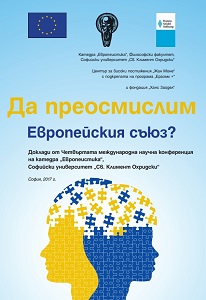The Idea of “Europe” and Socio-Economic Changes in the Western Balkans in the Age of Enlightenment
The Idea of “Europe” and Socio-Economic Changes in the Western Balkans in the Age of Enlightenment
Author(s): Slobodan Pavlović
Subject(s): History, Economic history
Published by: Университет за национално и световно стопанство (УНСС)
Keywords: Balkans; Serbia; The Habsburg Monarchy; Europeanization; 18th Century
Summary/Abstract: In recent years, the European Union and its Member States have been struggling with many crises. Economic stagnation and gradual decay of the welfare state have triggered many socio-political issues, the most prominent being the rise of radical political movements. The current state of the EU is raising many concerns. Yet, the idea of “Europe” is not a brainchild of the 20th century; it is the product of historical process that spans over 2 millennia. In that regard, Early Modern Age (15th-18th centuries) should be considered crucial to the process, as this was the time when the instruments of the European policy were established. The subject of this research is the 18th century Europeanisation of the Western Balkans, namely the territory of the modern day Serbia proper. This era saw great improvements, especially following the expansion of Habsburg Empire in 1718 to the territories south of Sava and Danube. Effort was made to establish the contemporary European institutions which could efficiently exploit natural resources, create modern taxation system and implement European mercantilistic policies. Based on the sources of different provenance, the focus of this research will be on the Austrian governance of this region, which had an enormous impact on Serbian society as well.
- Page Range: 172-180
- Page Count: 9
- Publication Year: 2017
- Language: English
- Content File-PDF

